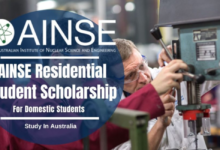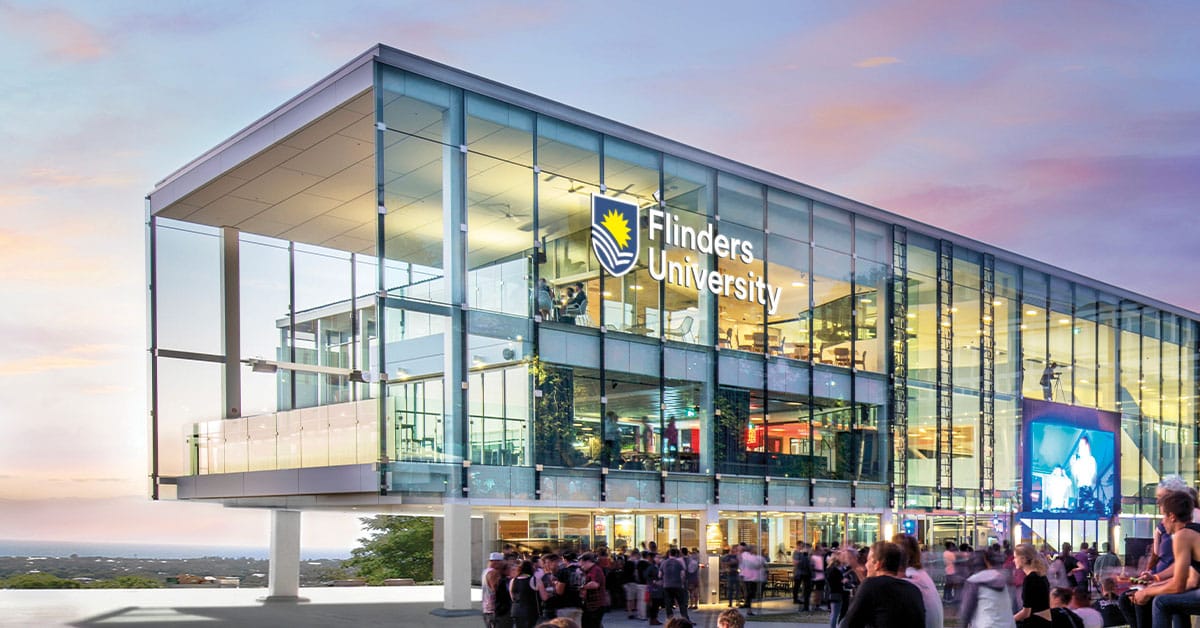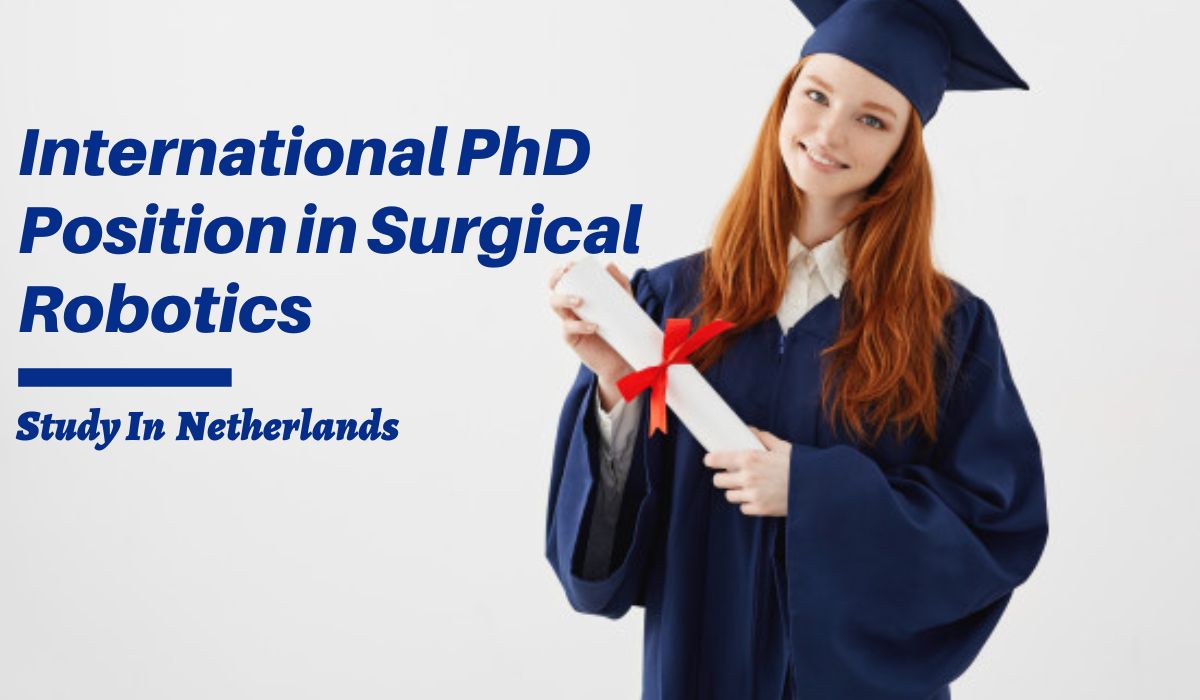Identifying genetic determinants of COVID-19 pathogenesis at the University of Technology Sydney, Australia 2023
Application is now open for the Identifying genetic determinants of COVID-19 pathogenesis at the University of Technology Sydney. Interested applicants are encouraged to send their applications in before the deadline date.
About the University of Technology Sydney and Scholarship
The University of Technology Sydney (UTS) is an acclaimed institution, recognized as Australia’s top young university and consistently ranked within the top 200 universities globally. Its bustling campus is situated in the heart of Sydney, providing easy access to various amenities and transportation, making it an ideal location for pursuing a PhD.
The Centre for Inflammation (the Centre) represents a pioneering collaborative effort between UTS and the Centenary Institute (CI). Under the leadership of Professor Phil Hansbro, this Center has earned international renown and is a world-leading hub for research on chronic respiratory diseases. It is held in high regard by Australian industry and government entities as a primary source of knowledge and expertise in this field. The Centre’s activities encompass fundamental research, groundbreaking discoveries, translational studies, and the development of innovative therapies and preventatives. Its focus ranges from uncovering the mechanisms that initiate and progress diseases to conducting translational studies involving human and clinical research.
The Centre is physically located within the Centenary Institute of Cancer Medicine and Cell Biology, an autonomous and globally recognized medical research institute with close affiliations to the University of Sydney and the Royal Prince Alfred Hospital. The institute’s research primarily revolves around three key areas: cancer, inflammation, and infectious diseases. Its notable strength lies in unraveling disease mechanisms and leveraging this knowledge to enhance diagnostic procedures and treatment methods for patients. The Centenary Institute is situated in Camperdown.
Prof. Phil Hansbro, an esteemed figure in the field, heads the Centre for Inflammation. His internationally acclaimed research program centers on the investigation of major chronic respiratory diseases, which currently lack effective therapeutic interventions. The Center is dedicated to developing novel preventatives and treatments for conditions such as Chronic Obstructive Pulmonary Disease (COPD), severe asthma, and COVID-19. To achieve this, the Center employs unique cellular and mouse models that faithfully represent each of these human diseases. These models are instrumental in understanding disease pathogenesis, identifying new therapeutic targets, and developing and testing groundbreaking therapies. Complementary human studies complement these efforts, translating findings into potential therapeutic targets.
This specific project aims to identify the genetic determinants underlying the pathogenesis of COVID-19. To achieve this, the research will be conducted within the state-of-the-art PC3/BSL3 laboratory, specifically designed for handling SARS-CoV-2. The team’s expertise is centered around the use of cellular and animal models to delve into disease pathogenesis and unearth novel treatments for COVID-19. The project will utilize genetically modified mouse models to investigate disease pathways that could contribute to either the development or resistance to COVID-19. Further enhancing this research, targeted drug studies will be conducted to confirm the mechanisms of action responsible for COVID-19 pathogenesis.
Your research journey will be under the joint guidance of Prof. Philip Hansbro, the Director of the Centre for Inflammation, and Dr. Matt Johansen, the Node Leader in Bacterial and Viral Immunopathogenesis. Both of these distinguished experts bring a wealth of experience and knowledge to provide you with invaluable supervision in this field.
Details about Identifying genetic determinants of COVID-19 pathogenesis at the University of Technology Sydney:
Scholarship Sponsor: University of Technology Sydney, Australia
Scholarship Value: $32,500 per year (RTP Stipend rate, indexed annually); additional funds ($7.5k) during the course for PhD-related expenses
Number of awards: N/A
Study level: PhD
Host Institution(s): University of Technology Sydney, Australia
Eligibility Criteria for Identifying genetic determinants of COVID-19 pathogenesis
Applicants are advised to meet the following requirements to be qualified for Identifying genetic determinants of COVID-19 pathogenesis at the University of Technology Sydney:
- Residency Status: Applicants should either be permanent Australian residents, New Zealand citizens, or international students. All are encouraged to apply.
- Educational Background: Applicants must possess a bachelor’s degree in a biomedical or biological science.
- Academic Excellence: A strong academic record is essential. This should be demonstrated through your academic history.
- Laboratory Experience: Prior laboratory experience is highly desirable.
- Additional Qualifications: Completion of an Honours degree with First Class or Second Class Division 1, or an MSc Research, or an MSc Coursework with a research thesis of at least 6 months is preferred.
Selection Procedure
- Motivation and Independence: You should be highly motivated and capable of working independently.
- Teamwork: The ability to work effectively within a team is important.
- Communication Skills: Strong communication skills and the ability to collaborate with a diverse group of people within established teams.
- Research Environment Knowledge: Familiarity with research and laboratory environments and their requirements.
- Computer Literacy: Proficiency in standard research software.
- Record Keeping: Ability to maintain thorough laboratory records.
- Laboratory Techniques: Experience with a variety of laboratory techniques including ELISA, RNA extraction, reverse transcription, qPCR, western blotting, cell culture, aseptic technique, histological analysis, Immunohistochemistry, Immunofluorescence, flow cytometry, and primer design.
- In Vivo Experience: Capability to conduct in vivo mouse models.
- Safety and Containment: Comfort with working with pathogens in a PC3/BSL3 laboratory, adhering to safety protocols and containment measures.
Application Procedure for Identifying genetic determinants of COVID-19 pathogenesis
Applicants should submit the following materials to Prof. Phil Hansbro via email at Philip.Hansbro@uts.edu.au:
- Curriculum Vitae (CV)
- List of publications
- Response addressing the selection criteria
Shortlisted candidates will receive additional information and instructions regarding the next steps in the application process.
The Submission Deadline is: 01 November 2023
Not interested in this particular scholarship? See other Australia scholarships here.








